Lyrical Luminary is an essay series analyzing the artistry of legendary and underappreciated MCs in the history of Hip Hop.
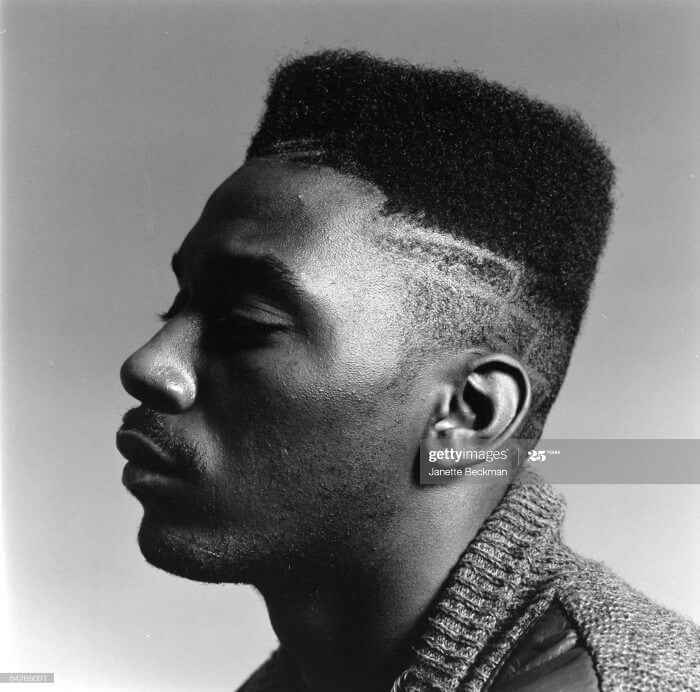
Brooklyn’s Finest: Big Daddy Kane
The Golden Age Era arguably produced more high-caliber MCs than any other era in Hip Hop history. With that said; there are levels to emceeing and while it seems like there’s a multitude of great MCs spanning different eras who deserve respect and recognition, there are a select few who are truly special; supremely gifted. Big Daddy Kane (which stands for King Asiatic Nobody’s Equal) is most certainly in that esteemed group.
The Moment
The song released at the beginning of Big Daddy’s career that put the rap game on notice. “Raw” (1987)
Big Daddy Kane had many notable moments in his career. But when was the moment; the point in his career when he set the rap game back on its heels?
Here I Am/R-A-W/A terrorist, here to bring trouble to/Phony MCs/I move on and seize/I just conquer and stomp another rapper with ease… “Raw” (2nd verse) (1987) (Source: Rap Genius)
Kane could have shut down the verse with just those few bars — that’s how powerful his wordplay and delivery are at the start. Big Daddy Kane’s “Raw” is a standout among a treasure of lyrical gems released in the young world of rap music just in 1987–88 alone. The record is nearly flawless from its fade-in to its fade-out.
But the second verse of “Raw” is special x 10. It’s the kind of performance that likely drove even the top MCs of its era “back to the lab” to work on their pen game. On “Raw”, Kane rhymes about being at his apex, which is saying a lot considering that he was just a rookie in the rap game at the time of the song’s release. With him already outshining all of the others in Hip Hop’s sky; just how bright could Kane’s star potentially become?
Kane exuded the same kind of brash confidence on Raw that a #1 draft pick in the NFL displays from the first snap in the season opener. Kane’s performance on Raw is how every rookie MC should come out of the stadium tunnel; STRONG, HARD, RAW.
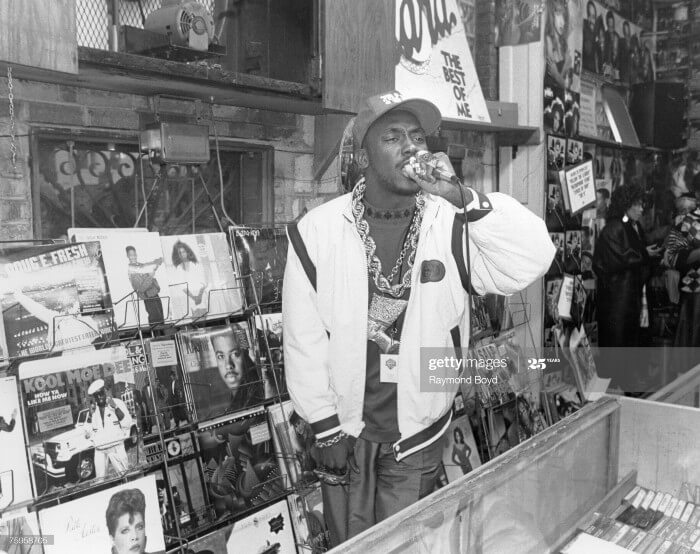
Big Daddy Kane was always ready to get R-A-W. Anytime. Anywhere…and against Anybody.
One of Kane’s favorite poetic devices was the simile. He was certainly not the first or last MC to use similes in rhymes. However, Kane is one of the best at deploying it; particularly to illustrate the differences between himself and his competitors.
On the second verse of “Raw”, Kane uses the metric system to expose his competitors, calling them “millimeters” while he; on the other hand, is a “kilo”. Later in the verse, Kane states that he’s “genuine like Gucci” and appropriately, “raw like sushi”. Kane mastered the use of the simile in his bars and “Raw” is the perfect case in point.
Big Daddy Kane was definitely NOT at his apex when he recorded Raw. Quite the contrary; ‘King Asiatic’ was just getting started. While other MCs might have a single verse (or two) of brilliance in their entire catalog, masterful lyrical performances would become customary in Big Daddy Kane’s repertoire.
But the impact of Kane’s performance on “Raw” should not be understated. Kane’s lyrical dexterity on “Raw” (and particularly; on its second verse) is timeless; the performance has that ‘goose-bumps’ quality when you hear it even now, nearly 35 years after its release. I feel confident putting Kane’s second verse from “Raw” up against any verse by any MC; whether it was recorded before his time, during his era, or in subsequent decades after the classic song’s 1987 release.
The Rise
The classic album that certified Big Daddy Kane as a great MC: Long Live The Kane (1988)
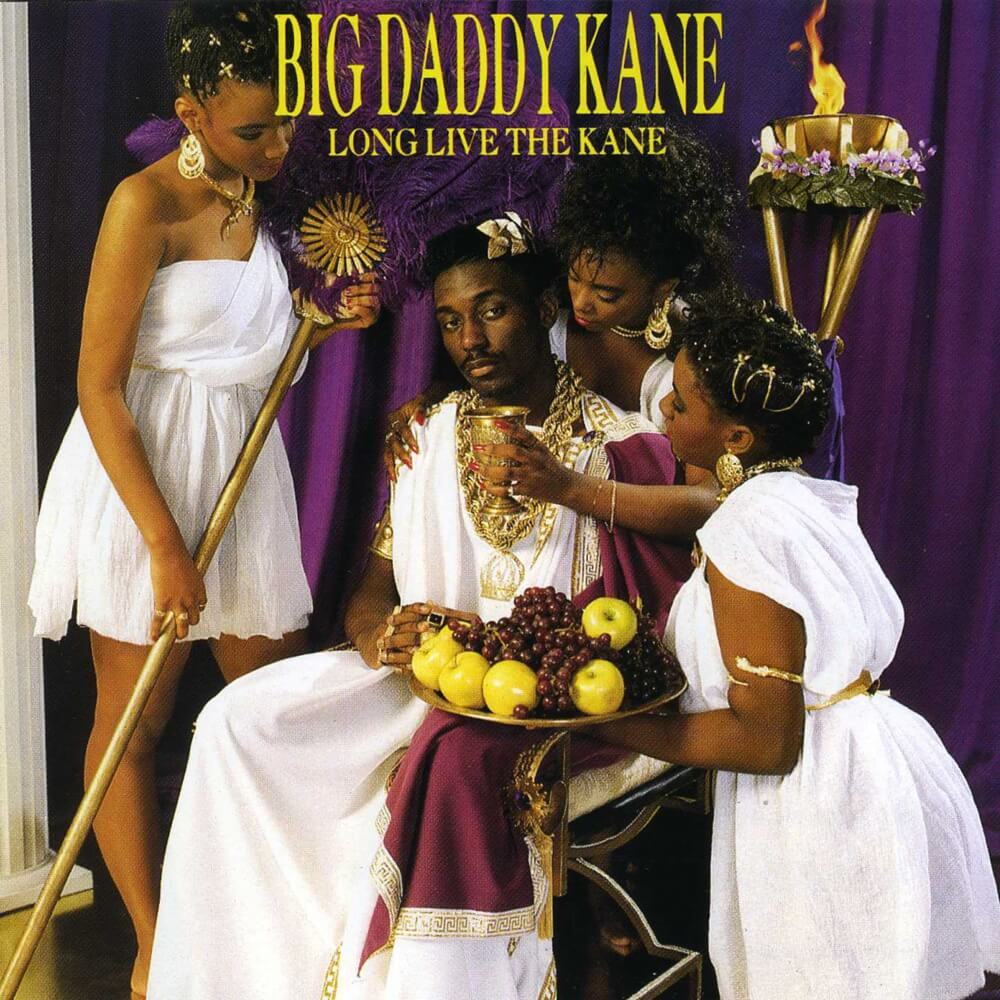
Long Live The Kane (1988) (Cold Chillin’ Records)
The start of Big Daddy Kane’s career had a meteoric rise with the release of his debut album, Long Live The Kane; which I think was well deserved. The album is considered a Hip Hop classic.
Kane displayed all the qualities of a superior MC on his debut: wizardly wordplay, flawless flow, captivating charisma, and sterling style. Kane; defyingly, proved to be the complete package right out of the gate. His lyrical skill and swagger appealed to the fellas while his charm and street-smart masculinity seduced ladies from different persuasions.
Long Live The Kanehas several gems, in fact, “Raw” was the first single off the album. But the second single, “Ain’t No Half-Steppin’” was the album’s biggest hit and arguably the best song in Kane’s catalog. The song was the first in his catalog to utilize what would become Kane’s signature (and most commercially viable) style; laid back, clever wordplay over a smooth, R&B-flavored track.
“Rappers steppin’ to me, they want to get some/But I’m the Kane, so, Yo, you know the outcome/Another Victory/They can’t get with me/so pick a B.C. date ’cause you are history/I’m the authentic poet to get lyrical/For you to beat me, it’s gonna take a miracle…” (Source: Rap Genius)
When it came to getting lyrical, as Kane proclaims, few MCs were as authentic as Big Daddy. Kane’s delivery would get smarter, sharper, and stronger with each forthcoming bar on a spellbinding verse. And, of course, on “Ain’t No Half-Steppin’”, Kane rejects lyrical laziness, employing rhyme similes with pure precision…
“Competition, I just devour/Like a pitbull against a chihuahua…” (Source: Rap Genius)
“So when I roll on you rappers, you better be/Ready/To die because you’re petty/You’re just a butter knife/I’m a machete…” (Source: Rap Genius)
“Ain’t No Half-Steppin’” was certainly the most impactful record of Kane’s career.
SIDE NOTE on a STELLAR performance that should NOT be overlooked: Kane along with his Juice Crew brethren; Craig G., Masta Ace, and Kool G Rap gave the whole world a remarkable masterclass on emceeing on the ultimate posse cut, “The Symphony” (1988). Produced by the legendary Marley Marl, the song is widely considered the greatest posse rap song ever made. It’s hard to disagree with that declaration.
The four MCs featured on “The Symphony” were like a world record-breaking, 4 x 100 Olympic gold medal relay team and Big Daddy Kane played his position as the awesome anchor.
Check out a few bars from Kane’s verse:
“So just acknowledge the way that I kicked it/Cause if rap was a house, you’d be evicted/And dismissed from the microphone/Chokin’ on a bone/Cause Daddy’s home/And battling me is hazardous to your health/So put a quarter in your a** ‘cause you played yourself/Like a game in an arcade, you need far aid/I’m walking the path that Allah made…” (Source: Rap Genius)
My favorite record on Long Live The Kane (in terms of, on the lyrical tip) is “Set It Off”. Kane doesn’t take the smooth, laid-back approach on this track. He picks up the pace significantly and is in full attack mode. Building on the lyrical mastery displayed in “Raw”, Kane takes the intensity up a level in “Set It Off”.
“Go with the flow/My rhymes grow like an afro/I entertain again and Kane’ll never have no/Problem/I can sneeze, sniffle or cough/E-e-e-even if I stutter/I’m ah still come off…” (Source: Rap Genius)
Kane’s lyrical prowess is startling on “Set It Off”, however, his detailed delivery throughout the song is what really captures the listener’s attention. Kane flows with clarity; listeners understand what he’s saying and why he’s saying it. And Kane’s perfection of timing is a crucial weapon in his arsenal. Kane’s pinpoint accuracy is detrimental to careers of careless, competing MCs.
On songs like “Raw”, “Ain’t No Half-Steppin’”, “Set It Off” and the album’s title track, Big Daddy Kane gives yet another masterclass on emceeing; but without the Juice Crew; solo style. With the release of Long Live The Kane, the Asiatic MC saw his stock in the rap game rise exponentially and his dominant lyrical performances on the project raised the bar for all MCs.
The Peak
The album that established Big Daddy Kane a certified legend: It’s A Big Daddy Thing (1989).

It’s A Big Daddy Thing (1989) (Cold Chillin’ Records)
Every artist who came onto the scene with a hot debut album will inevitably have to face the challenge of avoiding the ‘sophomore slump’. Big Daddy Kane appeared definitely up for the task. It’s A Big Daddy Thing; Kane’s second album was ‘another [decisive] victory’ for the Brooklyn MC, which happens to be the title of one of the best songs on the project.
The famed ‘Hip Hop Bible’; The Source magazine, bestowed its highly coveted five-mic rating on Big Daddy’s debut album. As a fan of Kane, I completely concur with that recognition. But even though the magazine selected It’s A Big Daddy Thing as one of the 100 Best Rap albums ever, the magazine didn’t give the album its sought-after classic rating which seems like a glaring contradiction.
In my humble opinion, It’s A Big Daddy Thing is a classic, without a doubt. It’s the best album of Kane’s career and easily a top 10 album released during hip-hop’s Golden Age Era. Big Daddy Kane was shining bright without any signs of dimming when his second project dropped in 1989.
Let’s dig into some of the highlight tracks from this album, starting with its hit singles:
“Smooth Operator”
Kane follows up his laid back performance on “Ain’t No Half-Steppin’” with “Smooth Operator”, which became the biggest commercial single of his career (Kane’s only #1 rap hit). Fitting to its title, the song has a silky smooth track which prominently samples Mary Jane Girls’ 80’s hit, “All Night Long”.
What I really appreciate about “Smooth Operator” is that even though Kane made a record that’s obviously meant to appeal to a broader audience, he doesn’t miss an opportunity to demonstrate top-notch lyrical skills for the true Hip Hop heads…
“Confuse and lose/Abuse and bruise the crews/Who choose to use my name wrong/They pay dues…” (Source: Rap Genius)
“I Get The Job Done”
Produced by Teddy Riley; the young Harlemite producer who would go on to become the master architect of the New Jack Swing sound, “I Get The Job Done” is a record served on a platter for the ladies. Though the song; about Kane’s sexual prowess, had female fans fiending, it’s Kane’s ever-present lyrical prowess that gets rhyme junkies bobbing their heads to the beat…
“Smooth and mild/I’ll make you smile, honey child/then hit the lights and get buck wild/And when I turn ’em back on, you’ll have to say/Like Calgon/’Please take me away’/So when your main course ain’t doin’ nothin for ya/Just look at me as a tasty side order/That came into your life and brought a thrill/’Cause any husband who won’t/I’m a neighbor who will/I get the job done…” (Source: Rap Genius)
Kane’s lustful lyrics were like a rejection-proof pick-up script for dudes who sought ‘guidance’ on how to seduce unfulfilled women in need of T.L.C.
Now, let’s look at some of the songs from the album in which Kane, the sly sharpshooter, threw deadly lyrical darts:
“It’s a Big Daddy Thing”
“Ahhh yeah!”
That’s how Kane kicks off the title track (produced by the underrated, Prince Paul) right at the start of the album. Kane delivered the kind of lyrical performance on the track that defied any inkling fans, critics or competitors alike might’ve had about him becoming just another victim of the sophomore slump.
Check out how Kane rips the second (and final) verse:
“Shorts, I take none, ’cause I ain’t the one/In ’89 there’s damage being done/And for you to diss me/Would be very risky/’Cause I make this be/As strong as whiskey/To break and make my foes dispose and fall/So yal can see, how me/The Kane will just reign/Superior/’Cause I ain’t even hearing ya/Save the yang cause it’s a Big Daddy Thing…” (Source: Rap Genius)
I think every true rhyme addict expected no less from Kane with the drop of his sophomore album. After all, he wasn’t a rookie anymore. The darts he slung in the album title’s track only reinforced his standing as one of Hip Hop’s most gifted wordsmiths.
“Another Victory”
The title of this song aptly describes Big Daddy Kane’s record of consistency as a Lyrical Luminary. Why do I say this? Because Kane notched ‘another victory’ in the rap game with each verse he delivered in his prime.
If competing MCs somehow managed to survive the album’s first-round (title track), they were surely knocked out cold in the second round after Kane’s ‘Iron Mike’ Tyson-like performance on “Another Victory” (track 2 on the album).
“Reaching a summit/As you learn from it/A lesson taught from Yours truly, so here cometh/The royal majesty/Others have to be/Fully prepared/Though they still won’t last with me…” (Source: Rap Genius)
Produced by Easy Mo Bee, Kane’s flow ‘rides the beat’ on “Another Victory”. But Kane’s not riding shotgun; he’s in the driver’s seat. Kane always seemed to be in control on a track and that’s what separated him from the vast majority of MCs. Kane’s use of perfect pitch as well as other skillful qualities in his toolkit, worked in unison to produce his flawless delivery.
“Mortal Combat”
By just three songs into It’s A Big Daddy Thing, it’s quite evident Big Daddy Kane is in what athletes call ‘the zone’. Kane is clutch on “Mortal Combat” as if he’s in ‘game mode’ during practice; like a three-point specialist effortlessly putting up ‘J’s’, or a feared homerun slugger casually crushing the baseball on every swing while in the batting cage.
“I rank supreme and it’s a rapper’s dream/To scheme and fiend for my technique, but redeem/Cause there’s only room for one teacher/Wise words from a wise man’ll reach ya/I teach freedom, justice, and equality/Peace to the brothers and sisters who follow me…” (Source: Rap Genius)
Big Daddy Kane proved on “Mortal Combat” that he was a no-nonsense five-star General on the brutally competitive battlefield of rap.
“Young Gifted and Black”
What’s my favorite song on It’s A Big Daddy Thing? Hard to say. There are several tracks on the album that are top-tier. “Young, Gifted And Black” is definitely one of those records. Produced by Marley Marl, the song is like an aerial-assault style offense combined with a shut-down defense, against those who question the flavor Hip Hop contributes to music’s delicious gumbo.
Kane is defiant on the song but not vulgar or reckless. He passionately fights for Hip Hop like a high-powered defense attorney while prosecuting the hypocrisy and condescension of perpetrators who commit ‘crimes’ of disrespect against the culture.
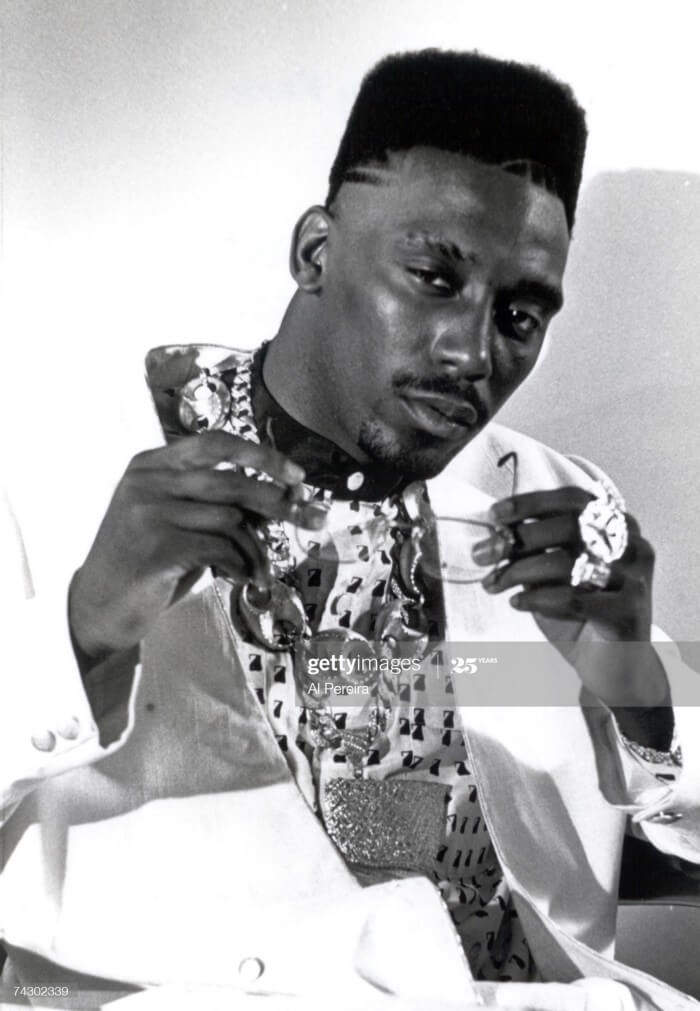
“Young, gifted and black” perfectly describes Kane stature during rap’s Golden Age Era.
If rap haters were being put on trial, Kane dished out pure poetic justice on “Young, Gifted And Black”.
“I’m not a pop star or rock-n-roller/I’m a rebel/Blessed/Able to hold ah/Mic like a hammer and drop grammar/Treat a rapper like a wrestler and body slam him/Those who dispute get treated just like a prostitute/They get the boot and played like a flute…” (Source: Rap Genius)
Kane doesn’t need a hook or chorus on this track. He doesn’t need support from background vocals or reinforcement from a star guest appearance. And while the Albert King bluesy-sampled track, produced by Marley Marl is pulsating; Kane’s verse would not have lost an ounce of its punch if he had ripped it acapella style.
“The Wrath of Kane” (Live at the Apollo)
The world-famous Apollo Theater in Harlem, New York is the mecca of live black music. Just about any legendary black recording artist you can think of has graced Apollo’s stage. I was just a kid in middle school; living about four hours away in the DMV area, when Kane performed “The Wrath of Kane” at the Apollo. Still, every time I listen to the live version of “The Wrath of Kane” it feels like I was there; at the Apollo, in one of the best seats in the house on the front row.
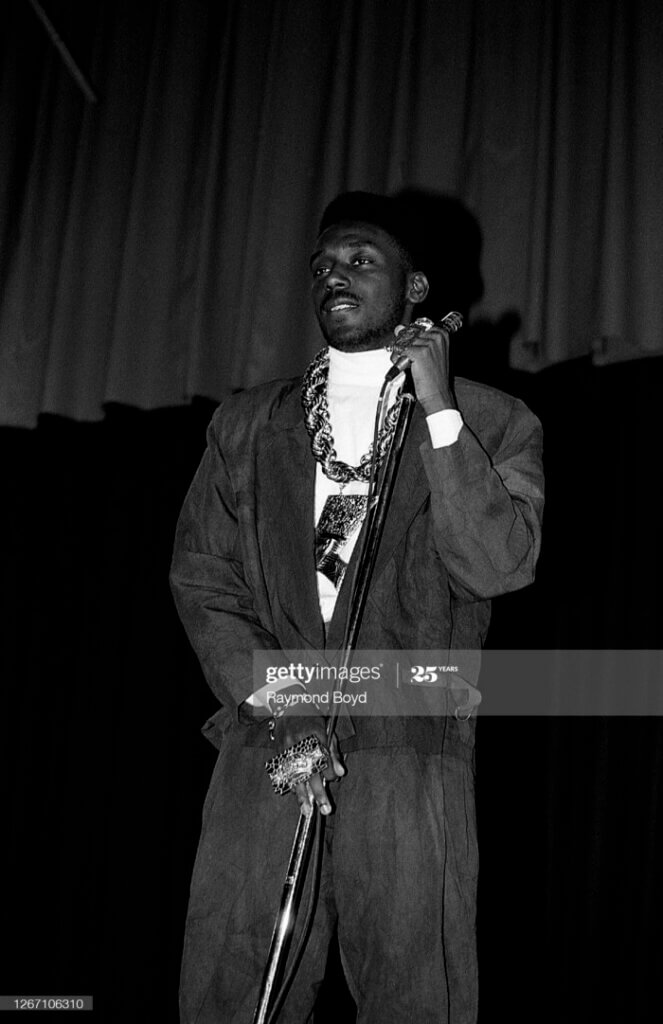
Big Daddy Kane was one of the best rap performers of his era.
Kane tells the excited yet hard-to-please Apollo crowd, “Ay yo, are yal ready to party or what??” And as the crowd screams its consent with joyful anticipation, Kane reacts by telling them, “We’re going to groove with this one tune for yal.” And then Mister Cee drops the beat featuring The J.B.’s guitar-driven sampled…
“Those who chose to oppose/ Friends of foes/I still dispose/Blow ’em out like afros/Too many rappers have fronted to get a name out/Yelling and screaming and dreaming but still came out…/Off the wall, as butter soft to yal/So you waited for Kane to come forth to yall/Competition, that bite and chew/And crunch and munch/To play me out position/You’re on a mission/But stop lyin’ and tryin’ to front adventures/Your rhymes are more false than dentures…” (Source: Rap Genius)
At his peak, Kane always brought the heat whether he was rhyming in the recording booth, battling in a cipher on a street corner, or performing on soul music’s most-storied stage.
“Warm It Up, Kane”
By the time listeners reach the end of It’s A Big Daddy Thing, it’s quite evident that Kane was in full throttle mode on this classic album. His vocal performances on the project are just plain ol’ special; the rhyme-and-rhythm ingredients ‘cooking’ throughout the album are a potent mix.
On “Warm It Up, Kane”, Big Daddy ends the album just as he started it: DOMINEERING.
“So I ain’t buggin’ or delirious/My swift’s tongue like a sword/That’s how severe it is/And I can slice and dice a Fisher-Price MC/That thought he was nice into Minute Rice/Single-handed, I ain’t with that band stuff/’Cause Cee’ll scratch a record like flakes of dandruff…” (Source: Rap Genius)
Does Kane pull back on his lyrical ‘slicing and dicing’ when he’s creating uplifting ‘feel-good’ joints? Nope.
“Children R the Future”
Kane produced a motivational song tailored for the ears of children. The record serves as encouragement for kids to reach for the stars. But Kane doesn’t condescend to his young listeners. Kane gets philosophical on “Children R the Future”, making an effort to avoid falling back on dry, simplistic cliches.
“Cause you are the cream of the planet Earth/The new birth/Now take that for what it’s worth/And give the child room to blossom and bloom/Livin’ large, it’s your destiny to consume/To take flight and ignite to a brand new height/’Cause that’s your goal in life/Am I right? (Yeah!!)” (Source: Rap Genius)
“Ain’t No Stoppin’ Us Now”
“Ain’t No Stoppin’ Us Now” is another record produced by Prince Paul. This uplifting song sampled a #1 R&B hit song of the same name. Released in the summer of 1979, the original record, by McFadden & Whitehead, was a song of hope and determination for a generation of black folks full of ambition and cautious optimism as the world headed into the money-making 1980s.
Kane’s rap version was made for the next generation of young black people who were coming of age as the world ushered in the mo’ money 1990’s. And like McFadden & Whitehead, Big Daddy Kane’s song of unshakeable strength is just what kids like myself at the time needed to hear.
“Cause it’s time to organize and open your eyes/Realize/We’re on the rise/To the climax, time to take charge/Whoever said we can’t live large/To seek out fortune without distortion/And stop living for just a small portion/There is a move to make, we gotta take a chance to break/All chains/Become awake…” (Source: Rap Genius)
“Rap Summary (Lean On Me) (Remix)”
This song is one of the more memorable tracks off the movie soundtrack of an urban cult classic, Lean On Me; Kane included it on It’s A Big Daddy Thing. While “Children R the Future” was positive reinforcement for the kids, “Lean On Me ” remix is food for thought served to teenagers trying to navigate the perilous paths of life.
“What do you do in a situation like this/Get tough/Or get dissed/The job is yours to play the boss/Enforce the laws/Because the source is knowledge/Wanna go to college?/Or wanna be garbage?/It’s up to you/So what you gonna do?/I prefer to learn/Cause this is for your own concern/You gotta earn/However the world turns/So wake up, to put some sense in your head/Don’t be mislead/Use your brain instead…” (Source: Rap Genius)
Well said.
Kane’s lyrical swordsmanship throughout It’s A Big Daddy Thing solidified the album as the Brooklyn MC’s magnificent magnum opus.
The Decline
When, why, and how Big Daddy Kane fell off. Or did he?
This is the section of the essay that I didn’t look forward to writing for several reasons. Why? Because I didn’t want to write words that might be misread as a slight to a Lyrical Luminary with as much cultural currency as Big Daddy Kane. Yes, I’m sure it’s obvious to you by now that you’re reading the words of a serious Big Daddy Kane fan; yet, it’s still my goal to write this piece with as much objectivity as possible.
Therefore, allow me to address the elephant in the room: Big Daddy Kane’s career fell into decline with the release of his third album, Taste of Chocolate, and then he practically fell off in the aftermath of his fourth album release, Prince of Darkness.
So, what happened?
Before I dive into these two underwhelming projects by an overwhelmingly great MC, allow me to provide some context on how promising artistic options caused a great MC like Kane to fall into a dreadful artistic dilemma.
The Rap Love Song
I’ve always appreciated the rap love song. Yes. There, I said it. I’m not ashamed, in fact, I embrace my fondness for the rap ballad. I grew up in the ’80s and ’90s and yet I have an affinity for 60’s and 70’s soul music; basically, I’m on ‘old soul’. So, the rap love song is consistent with my musical leanings.
I won’t try to name every rap love song released in rap’s Golden Age Era; but here’s two of my favorites: One Love (Whodini, 1986) and Funky Dividends (Three Times Dope, 1989). When it’s well-executed, a good rap love song is what I call a ‘pure play’, meaning: it’s played on the radio, it’s played in the clubs, it’s played by the ladies and it’s played by the fellas; for the ladies.
The rap love song; back in Kane’s era and up to present day, is not a career-killer for a great MC; it’s added value (again, when done right) and injects versatility to his catalog. The love song is literally a ‘seductive’ skill in an MC’s repertoire. Many male MCs have used the rap love song to appeal to the ladies, broaden their audience, and score #1 hits.
Big Daddy Kane had a couple of decent rap love songs on both of his first albums: “The Day You’re Mine” (Long Live The Kane) and “To Be Your Man” (It’s A Big Daddy Thing). Of course, Kane’s image at that point of his career was more womanizer than romantic lover. Big Daddy Kane was a proud player.
Therefore, before the release of the Taste of Chocolate album, Kane was known more for flirty records about sexual escapades than devoted love affairs. “I Get The Job Done” is the most notable track of the kind, however, check out the start of the third verse from “Smooth Operator”.
“Now, girls step up to this/One simple kiss/And it’s over, Ms./Sold to nice dreamers, high as the price seems/Girlfriend, you’ve been scooped like ice cream…” (Source: Rap Genius)
The Great MC-turned-Sex Symbol
The love song; for and about the ladies, became a standard on rap albums and Big Daddy Kane was arguably better than other male MCs at the execution of records in the subgenre. Kane’s magnetism had such a pull on the ladies that it turned him into a bonafide sex symbol.
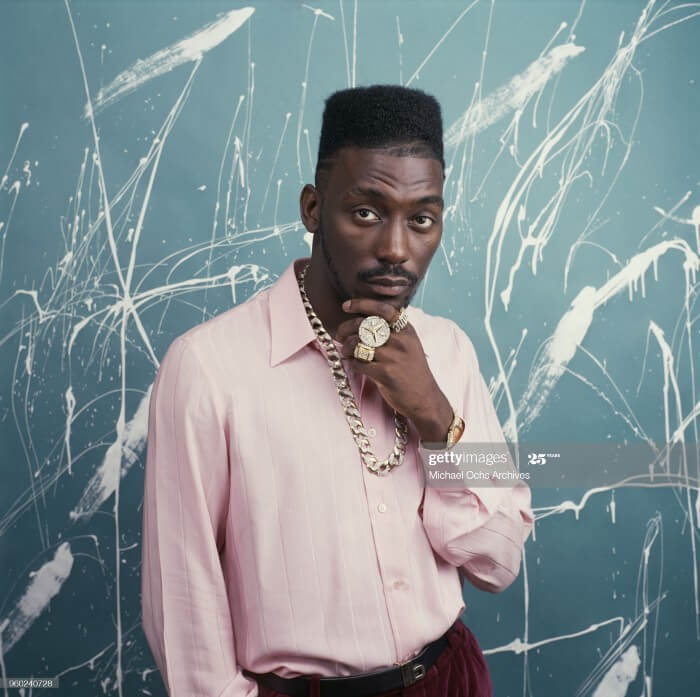
Big Daddy Kane became one of rap’s first sex symbols.
As the legend of Kane’s lyrical prowess grew so did his appeal to the ladies. What male MC wouldn’t embrace a growing female fan base? And as far as male fans; I can personally attest that dudes; from grown men to teenage boys (like myself at the time), admired (albeit, a little enviously) the hysterical attention players like Kane received from the ladies.
Just take a look at the covers of Kane’s first two albums. Kane is surrounded by three beautiful black women on both classic albums. So, clearly, Kane never shied away from appealing to women.
Nevertheless, I think it’s fair to say; Kane didn’t need the female audience in order to thrive. He had already fully established himself as a certified Lyrical Luminary just two albums deep into his career. Still, Kane’s popularity with female fans was an asset and something he nor his record label would dare ignore. Kane leaned into the image of a sex symbol, seemingly without any signs of ambiguity.
The Shift (Part 1)
Did Big Daddy Kane face an artistic dilemma at the time of the release of his third album, Taste of the Chocolate?
Sure, Big Daddy Kane’s female fan base was growing and getting ‘louder’ in terms of their level of influence on his career. But Kane’s core audience weren’t female fans; it was primarily guys who had an appreciation and admiration for his rhyme skills. True, the ladies couldn’t get enough of that smooth, lover boy flow, but his core audience wanted to hear Kane rip the mic with unrelenting rugged rhyme play.
Let’s assume Kane was grappling with an artistic dilemma at the time of the release of Taste of the Chocolate. If so, it took just one listening session of the album for fans to realize his decision: Big Daddy Kane was making a clear-cut shift; his core audience at this point in his career would be the ladies.
Taste of Chocolate
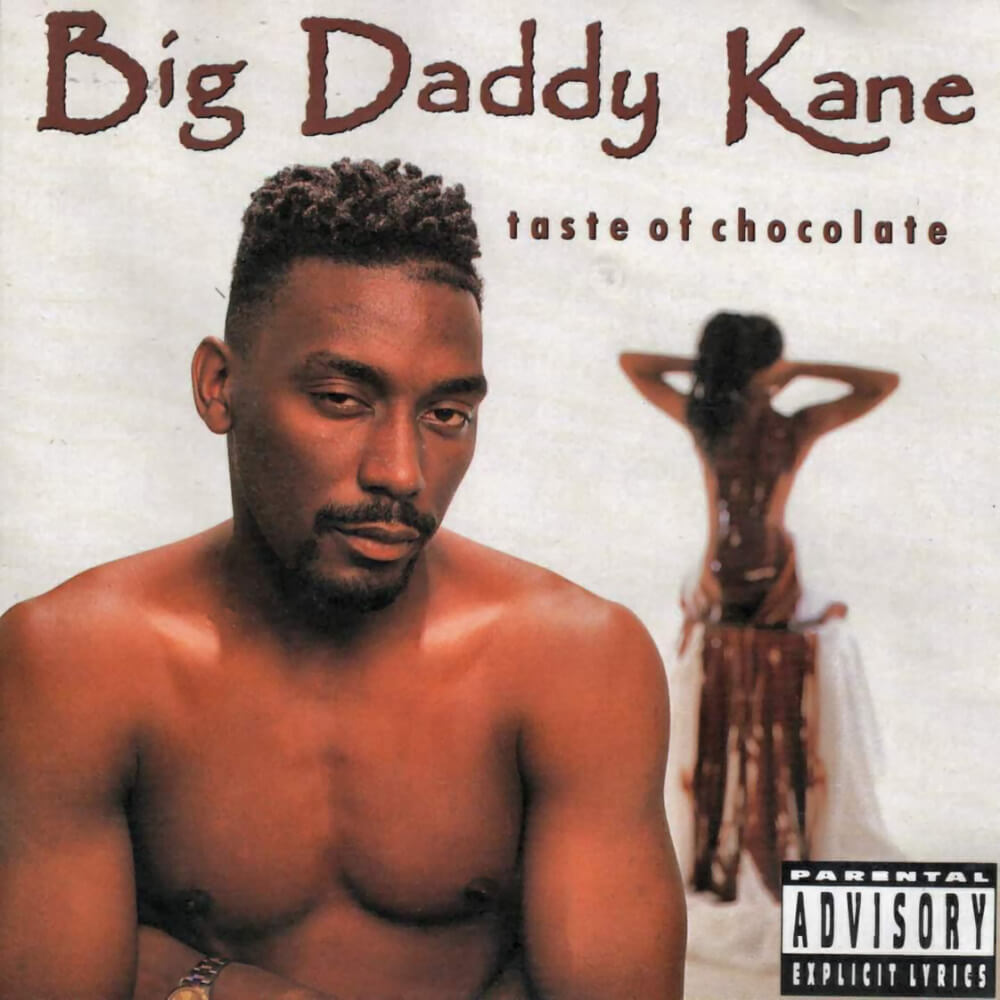
Taste of Chocolate (1990) (Cold Chillin’ Records)
Taste of Chocolate album is not a bad effort, in fact, it’s good; but it’s not great. And that’s the somewhat ‘unfair’ assessment of the project. The fans who were riding with Kane since his Long Live The Kane debut weren’t hoping for greatness, they were expecting it.
And greatness; within Big Daddy Kane’s standards, had always been defined as songs in which the MC delivered the highest level of lyrical prowess. But that didn’t seem to be Kane’s main objective on Taste of Chocolate. The project’s messaging; from the album’s cover to its title conveyed to fans the kind of experience awaiting them even before they heard the album’s funky soulful Sylvester-sampled intro.
Kane showed flashes of his lyrical brilliance on Taste of Chocolate. In fact, the album’s third released single; “It’s Hard Being The Kane”, is a lyrical lover’s dream and the best rhyme-heavy record on the project.
“Cause like a vigilante, I’m gonna kill off any/Sucker MC that tries to withstand me/With the mic in my hand I start flowing, then/All competition flee and start goin’ in/The other direction/Run for protection/Cause I can burn an MC like an erection…” (Source: Rap Genius)
The first two released singles off the album, “Cause I Can Do It Right” and “All Of Me” (featuring Barry White) were clear indications of the path Kane was taking on Taste of Chocolate. Kane was in full lover boy status on this project. The love songs were decent (How can you argue against a ballad with Barry White on it?) but they lacked the street-certified swagger songs like “Smooth Operator” and “I Get The Job Done” embodied on It’s A Big Daddy Thing.
Kane made solid cultural statements on songs like “Who Am I” and “Dance With The Devil”. And the back-and-forth banter Kane does with legendary comedian; Rudy Ray Moore, on Big Daddy vs Dolemite, were nearly 5-minutes of mischievous pleasure to young ears like mine at the time.
But the uncomfortable truth is Kane just didn’t sound as lyrically sharp on Taste of Chocolate as he did on his first two albums. The lyrical performances on Taste of Chocolate aren’t as crisp; his timing, wordplay, and flow are all just a little off.
With that said, Kane’s lyrical lashings are still slightly above that of the average MC on Taste of Chocolate. But, that’s no surprise. It wasn’t the lyrics on the album that disappointed; it was the overall tone of the project that left much to be desired. After digesting Taste of Chocolate, even the most loyal Big Daddy Kane fan had to concede that the career of Brooklyn’s Finest MC was starting to decline.
Prince of Darkness
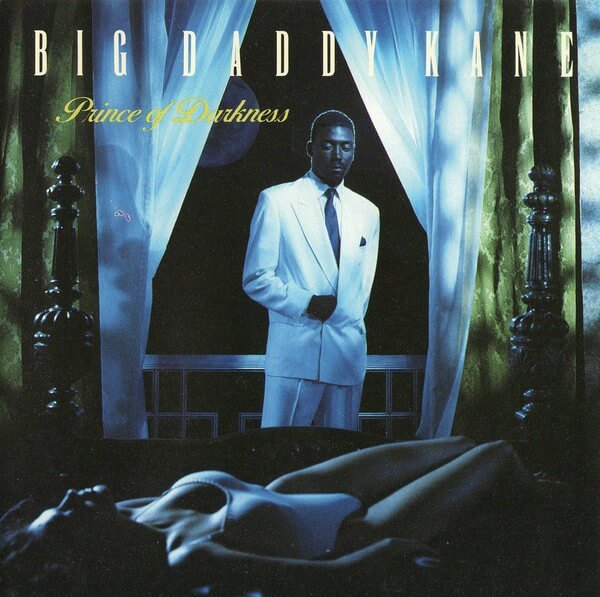
Prince of Darkness (1991) (Cold Chillin’ Records)
It pains me to say this: When Big Daddy Kane dropped his fourth album; Prince of Darkness, the Hip Hop world had no choice but to face a reluctant realization that King Asiatic Nobody’s Equal; one of rap’s first ‘God MCs’ — had just about fell off.
Kane tried to show that he was still R-A-W when he released “Raw ’91” as the first single off the album. But the record was not a new, updated version of the street-certified hit. Instead, the lyrics are actually vintage verses from three of his most classic songs including “Raw”(original), “Set It Off” and “The Wrath of Kane”.
The unique approach Kane took of compiling together classic verses from three of his most famous songs into one ‘new’ song, came off as a futile attempt to tap into fans’ (and his) nostalgia for the glory days of his reign. Kane could have (and should have) went into the studio to produce a brand new ‘Picasso’, painted with detailed strokes of his signature colorful rhymes.
Prince of Darkness has a few solidly-produced records. For example, “The Lover In You” smoothly-sampled Prince’s “Pop Life” and is a well-written song about the proper way to love a woman. It’s a nice record but it’s not what the core fan who needed a ‘fix’ from Kane’s brand of ‘dope’ lyrics wanted to hear.
Kane still managed to drop a handful of sparkling lyrical gems on cuts off the album like “Come On Down”, “Death Sentence”, as well as bars like these from “Ooh, Aah, Nah-Nah-Nah”…
“Enquiring minds wanna know, did the champ retire/So here I am/Boomin’ like an amplifier/I clear my throat then I float like a boat/Note for note/What I wrote/You can quote or even tote…” (Source: Rap Genius)
Kane was not retiring, but unfortunately, he just didn’t come close to delivering the kind of lyrical treasures on Prince of Darkness that fans had become accustomed to hearing during his early years of emceeing. To be blunt: Prince of Darkness was a lackluster album that surely left 90’s hip-hop heads wishing it was still 1988 or 1989 again; the period when Kane was in the rarest form.
What path could Kane have taken?
As I stated earlier, becoming a sex symbol in the rap game doesn’t have to be a curse for an MC. After all, female fans were an important part of Hip Hop during Kane’s era and continue to be today. The challenge for a male MC attached to a sex symbol image is how to balance that female appeal while still having full-fledged credibility as a not-to-be-taken-lightly lyricist. After all, women appreciate great lyricism too.
I don’t think Big Daddy Kane ever lost credibility as a lyricist (otherwise, I wouldn’t be calling him a Lyrical Luminary) but I do believe he “lost a step” in his lyrical assault and the conflict he fell victim to; between being a sex symbol versus being a master lyricist, was a primary factor in his decline.
Big Daddy Kane seemed set on capturing a bigger slice of an already captivated female audience. And he nearly abandoned his brand of superior lyricism to fulfill that unnecessary mission. He didn’t ‘dumb-down’ his rhymes like some Lyrical Luminaries are prone to do. He simply ‘R&B-tized’ his style a little too much. Kane went from being known as one of rap’s greatest MCs to becoming self-reincarnated as an R&B rapper-crooner.
L.L. Cool J immediately comes to mind as one of few MCs who were able to balance contrasting dual images. Someone with the name, ‘Ladies Love Cool James’ is obviously positioning himself as a sex symbol. But L.L. could most definitely be a lyrical assassin which he showed whenever tested throughout his career. He perfected the formula of making chart-topping rap love songs while still delivering scorching hot lyrical performances on edgy records.
Kane could have continued the very formidable balance attack he struck between being a lover and a fighter at the same time; as he had done when he seamlessly stitched together his masterful musical design on It’s A Big Daddy Thing.
The Shift (Part 2)
A sometimes overlooked factor when debating Big Daddy Kane’s unexpected decline is the climate of the rap game in the early 1990s. The rap game saw a diversity of styles during its Golden Age Era; a period in which Big Daddy Kane thrived. But early 90’s hip-hop experienced a shift; the hardcore genre grew in size, influence, and popularity. Lyricism was still a valuable asset but the preferred style, subject matter, and image of the MC changed right around the time Kane released his R&B-flavored love fest, Prince of Darkness.
Hip Hop was becoming more ‘gangsta’ in tone and the styles of MCs like Big Daddy Kane weren’t aligned with the direction rap music was trending toward at the time. A Kool G Rap record featuring Kane, “#1 With A Bullet” (1992), illustrated the artistic dilemma the Brooklyn Bomber found himself facing as the rap game entered the early stages of a seismic shift.
Kool G Rap; a fellow member of Queens-based The Juice Crew, is a certified Lyrical Luminary in his own right. Unlike Kane though, G Rap’s style was hardcore and ‘gangsterish’ in tone ever since his 1989 debut album with DJ Polo; Road To The Riches. On “#1 With A Bullet”, Kool G. Rap’s hardcore performance is what fans expected. Kool G Rap was ahead of his time; he mastered the East coast-flavored style of gangsta rap several years before it would become en vogue.
Big Daddy Kane’s guest verse on “#1 With A Bullet” is decent but sounds forced, uninspiring, and definitely not what fans were used to hearing from him.
“A one-man gang to bring the bang/So the next n***a can’t even hang/Yang, yang, yang, yang/You know my style and my pedigree/You can ask Saddam Hussein about me…” (Source: Rap Genius)
The rhyme is O-K, but frankly, it was simply a challenge for listeners to embrace Kane’s sudden gangsta persona on the record. Kane’s lyrical content on “#1 With A Bullet” just didn’t fit the lover boy image Kane had already decided to transition into a couple of years prior.
Kane was a proud product of the Golden Age Era and though his rhyme skills could still be matched up with those displayed by elite MCs, the state of the industry was clear: the rap game was largely moving on from the Golden Age Era and that included most of its premiere artists, even the incomparable Big Daddy Kane.
The Respectable Releases
As Hip Hop moved forward; away from the Golden Age Era and Kane’s relevancy continued to fade, the Brooklyn MC would actually go on to release three more respectable projects in the ’90s after the disappointing Prince of Darkness.
Looks Like A Job For… (1993), Daddy’s Home (1994), and Veteranz Day (1998) were all decent showings for a seasoned MC that still had some fight left even though he was clearly up against the ropes. The most striking common denominator of all three projects are the album covers, None of the album covers featured scantily-dressed beautiful women; just Kane by himself, clearly trying to distance himself a bit from his overly-sex symbol image.
Still, Kane’s biggest song during this moderate revival period was “Very Special”; an R&B-flavored duet Kane recorded with Spinderella (Salt N’ Pepa’s DJ). The track was featured on his fifth album, Looks Like A Job For... The love song was actually a Top 10 record on Billboard’s Rap charts. But regrettably, it was apparent to most fans that Kane’s lyrical light had lost a significant amount of its shine by the end of the 1990s.
The Impact
Big Daddy Kane’s influence on the MCs who came after the end of his reign.
I don’t think rap music artists, journalists, commentators, critics, media personalities, scholars, or knowledgeable fans can dispute Big Daddy Kane’s impact on Hip Hop. It’s always hard to assess what amounts to a largely subjective debate but it’s safe to say that Big Daddy Kane is well-respected from both past and present participants of this Hip Hop experiment.
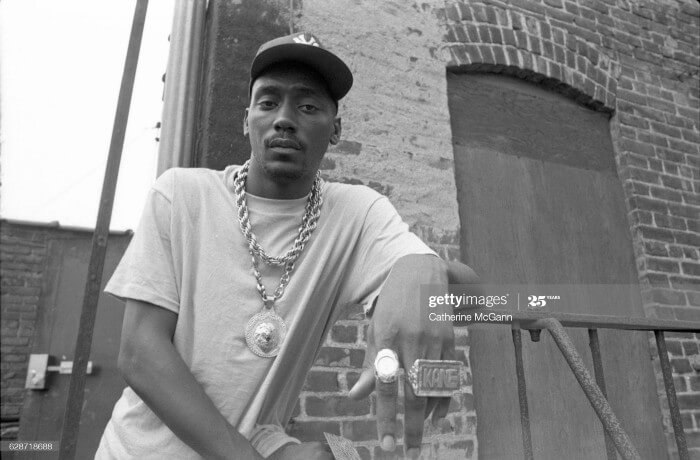
Big Daddy Kane’s impact on the rap game is immeasurable.
Speaking of respect, Kane was held in high esteem while feared at the same time by his contemporaries. Wack MCs knew not to even think about trying him. Average MCs acknowledged that even on their best day they wouldn’t last past a few bars. Of course, ‘real recognize real’; as the saying goes, and so even the most elite MCs of Kane’s era had a healthy appreciation for Kane’s lyrical prowess and thought twice (and then two more times after that) before going up against him in a battle, even if they would never publicly admit it.
Big Daddy Kane’s biggest impact on Hip Hop may have been the premium he attached to lyricism. Kane had a gift of rhyme; and in his prime he was arguably the best of his era. Wack, average, or even ‘lazy’ gifted MCs didn’t want to grace the same stage as Big Daddy Kane in his heyday. He could captivate an audience with luxurious style and lyrical substance. In his era, lyricism meant something, and few demonstrated rhymes skills at a level nearly as high as Big Daddy Kane.
In Hip Hop, we talk of how certain MCs are ‘your favorite rapper’s, favorite rapper’. It’s a clever way of distinguishing the truly all-time greats from those MCs who may indeed be good but are likely just ‘hot’ at that very moment.
The ‘hot’ kid of the moment might be your favorite MC; but is there a general consensus within the culture proclaiming his or her all-time greatness?
Probably not.
So, if we just look at the great ones; the MCs who’ve earned a spot in the GOAT (Greatest Of All Time) debate: who are their favorite MCs?
The Notorious B.I.G. and Jay-Z; fellow legendary Brooklynites, are both considered two of the greatest MCs to have ever stepped into the recording booth. A young Jay-Z was Kane’s protege decades before Mr. Carter became the billionaire household name that he is today. There’s no doubt that Big Daddy Kane’s career inspired Biggie and Jay-Z. Both MCs stated this much in their rhymes. You can hear Kane’s influence in the styles of Biggie and Jay just by listening to a few bars from any of their masterpiece verses.
Of course, all-time greats like Jay-Z and Biggie are far from the only MCs who have been inspired and influenced by Big Daddy Kane. Pioneer MCs who came before Kane acknowledge his greatness. Enlightened MCs of today who have really studied the past show their appreciation for the master lyricism Kane brought to the game.
Kane’s complete package as an MC has been a source of inspiration for generations of rappers who put in long hours honing their skills. These MCs all have dreams of delivering the most-talked-about verses in the rap game today, just as Kane graced us with 30+ years ago on “Raw”.
The Legacy
How should Big Daddy Kane’s career be remembered in the history of Hip Hop?
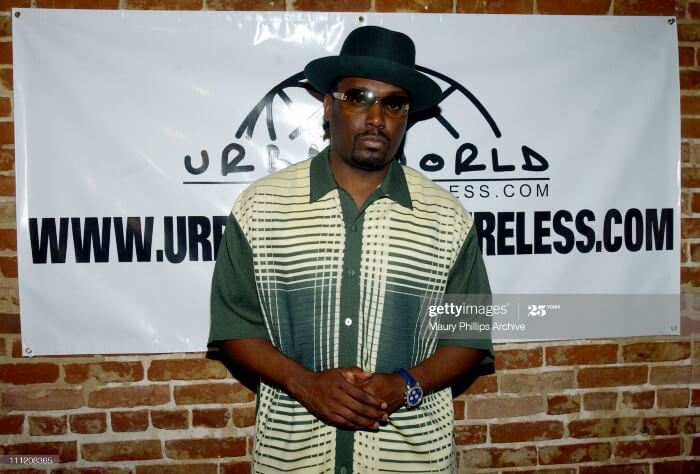
Big Daddy Kane’s legendary status in the rap game is undisputed.
Big Daddy Kane is a highly decorated MC who is still rather active in touring and recording in comparison to his contemporaries. Clearly though, his prime years have passed. But in some ways he’s even smoother; and deadlier (lyrically speaking) today as he was during rap’s Golden Age.
Here’s a question I would like to pose: What is Big Daddy Kane’s legacy?
I guess the answer to the question depends on who you are, where you are, and when you started your Hip Hop journey. If you were just a baby in diapers or years from even being born when Kane released It’s A Big Daddy Thing you’re not likely to fully understand the magnetism Kane possessed during the rap’s Golden Age.
And if you’re a real ‘OG’ who came of age during the earliest years of Hip Hop, you might understandably feel that you’re in the most credible position to school us all on how pioneering MCs like Melle Mel, exemplified elite levels of emceeing years before Big Daddy Kane wrote his first rhyme.
I don’t speak for my entire generation but allow me to share my personal memories of Big Daddy Kane: First of all, I never met Kane. But as a kid, I felt like I knew him. It was as if he was the ‘Big Homie’ in the neighborhood that all of the younger ‘shorties’ looked up to. I was in middle school during Kane’s reign and I’ll describe my impression of him this way: I was absolutely convinced that Big Daddy Kane was the coolest dude walking and talking (and rappin’) on the planet!
A little part of me still believes that impossible-to-prove hyperbole…
Kane was in rap’s first exclusive club of superstars. Fans just knew he was someone special as soon as he grabbed the microphone and started flowing. Even though some would argue that his ladies’ man image was overdone, it certainly contributed to his legend as an entertainer. Kane was the guy that other guys wanted to be like and the ladies wanted to be with. Kane could deliver that smoothed-out flow that made him world-famous, but make no mistake: Kane could also bring the wrath.
Regarding the combative term wrath, Big Daddy Kane lyrically delivered at a much higher level than what fans have seen from other MCs before, during, and after his era. The title of one of his most brutal lyrical assaults; “The Wrath of Kane”, seems like a fitting phrase to characterize his reign over his rap game and his enduring legacy.
Big Daddy Kane’s catalog is about 7 albums deep; and I think most will agree that his first two albums are classics while the rest of his studio album projects were average. Yet the fact remains, Big Daddy Kane had a career that any aspiring MC would dream of having. His legendary status cannot be disputed.
In Kane’s illustrious collection are verses, underrated tracks, hit songs, and two full-length albums that are timeless; compositions that can be matched up against the best work of any MC of any era. Big Daddy Kane’s superb lyricism; particularly when he was at his peak, has been and will continue to be studied for generations to come.
Is Big Daddy Kane the GOAT? Honestly, I can’t say with strong conviction that Kane was even the best MC of his time. That’s far from a slight; it’s simply a reflection of how competitive his era was. But here’s one thing I’m willing to bet with anyone: There’s a very good chance Big Daddy Kane is the GOAT’s favorite rapper.
Republished from Medium. Written by Duane Lawton – author of Lyrical Luminary: Essay series analyzing the artistry of legendary and unappreciated MCs in the history of Hip Hop.
